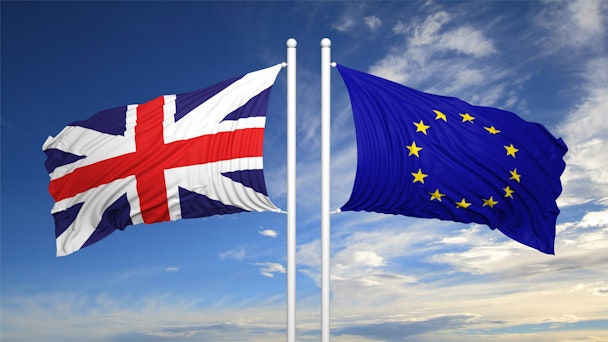Three months on: Life after Brexit for marketers
It was a day of mixed feelings at the Institute of Directors Annual conference earlier this week(27 September) where the topic of Brexit was never far from conversation. The morning offered a bleak outlook on business challenges in the coming years, with Scottish first minister Nicola Sturgeon urging business leaders not to “accept inevitability of a hard Brexit”. The afternoon, however, sought to show that ambition can overcome adversity, with Martha Lane Fox saying that this crisis point should not go to waste.

IoD
The contrasting views at the event are somewhat indicative of just how much is at risk for businesses and nations the longer the Brexit uncertainty continues. Three months on from the momentous decision, the government has said little on how it will manage the split, with prime minister Theresa May insisting that it will not give a “running commentary”.
And as uncertainty prevails, consumer’s relationships with brands is being twisted and forcing marketers to be mindful of the the precarious position the UK finds iteslf in.
As a result, business directors have remained cautious in the face of numerous reports claiming that companies could leave Britain in their droves and that the country as a whole is losing its global competitiveness. According to an IoD poll in the aftermath of the result, over a third of the organisations' members said the outcome would cause them to cut investment in their business.
Taking to the conference stage at the Royal Albert Hall, secretary of state Greg Clark remained tight lipped on exit plans but talked about how important it was to “burnish the strengths” of Britain’s businesses to the wider world after suffering embarrassment as a result of the political turmoil which ensued post-vote.
“We’ve have enough drama in British politics. I want us to recover our reputation for predictability and reliability,” he said, pointing to the professional services industries – including advertising – as those that “set the global standards.”
And while there has been much speculation, particularly among marketers, about what Brexit means for talent coming in and out of the country Clark promised that the government would “create the conditions to make [Britain] open".
“Don’t accept the inevitability”
However, this was met with fighting talk from Scotland’s first minister, Nicola Sturgeon, an ardent Remain campaigner, who she would work with the prime minister “as constructively as possible” while still protecting the interest of Scotland, which as a whole voted to remain.
“I don’t believe we should accept the inevitability of a hard Brexit,” she said. “We should take a course of action that will deliver the least amount of damage.”
Sturgeon reiterated comments previously made that another Scottish referendum emainsr an option if the approach by Westminster is damaging to the country’s interests.
Wider concerns
But of course Brexit is just one of a myriad of challenges facing both global and local businesses in the coming years. Economist Dr. Dambisa Moyo warned that it is just one of some 20-30 global issues that pose a significant risks to growth, among which is the “very real risk” of the jobless underclass which is emerging as technology advances.
“As much as 47 per cent of the US economy could be disrupted in 20 years. These stats are not new, but from a public policy perspective we need to address that,” she urged.
In emerged during the conference that this is indeed a problem on the mind of most business leaders, who are consequently trying to reengineer how people can work.
'More creative uses of technology will help the UK prosper'
Lastminute.com founder and former government adviser Baroness Martha Lane Fox provided some positivity and said that the country is at a post-Brexit “crisis point” where there is the opportunity to hit the reset button and really think about what it means to be a modern business. Chief executives across the board have only just woken up to the fact that being a business with a social purpose is good for the bottom line, with the likes of Unilever and P&G all trying to show what they do for local communities.
But Lane Fox said that with 12.5 million adults in the UK unable to use the internet to do basic tasks is a huge opportunity for brands to help address this problem, and in turn open up new demographics of people who will engage with them in new channels.
And as for the swathe of businesses that don’t use the internet at all, there is a wider government responsibility to “grab this question, own it and drive forward leadership," she advised.
“If we powered up all the businesses that don’t use the internet and contributed to it in that way – we’d have £76bn to play with. Just think about what that would mean for society,” she said.

